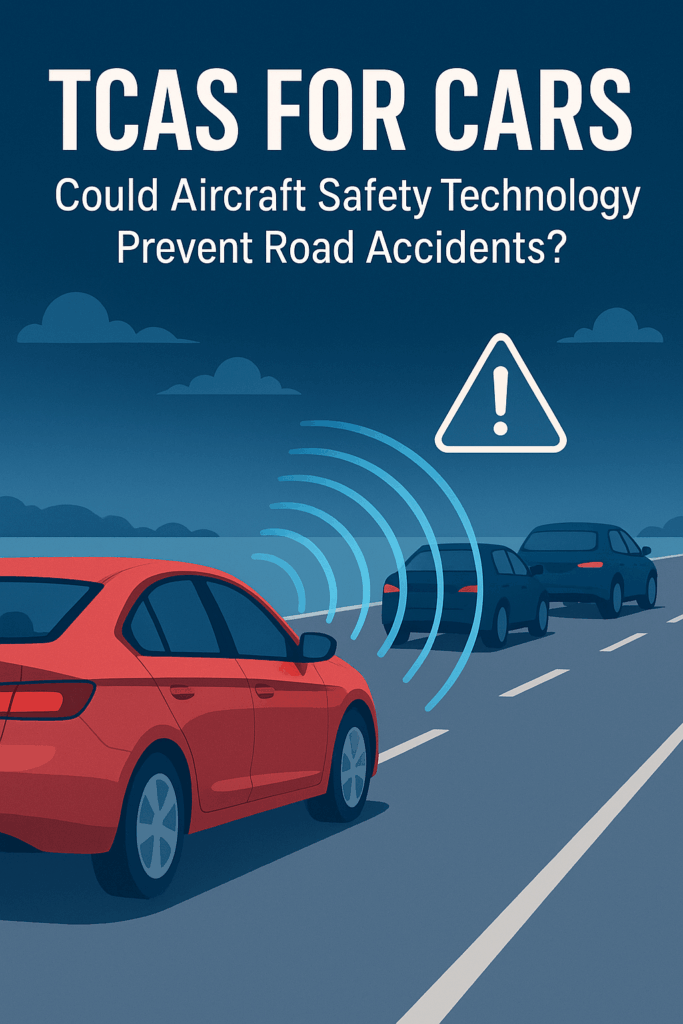Kur mendojmë për TCAS (Traffic Collision Avoidance System – Sistemi i Parandalimit të Përplasjes në Trafik), zakonisht na shkon ndërmend aeroplanët që komunikojnë në ajër për të shmangur përplasjet. Por, çfarë nëse i njëjti koncept aplikohej tek makinat? Me zhvillimin e teknologjisë automobilistike, studiuesit dhe prodhuesit po eksplorojnë sisteme sigurie të frymëzuara nga aviacioni që mund ta bëjnë trafikun rrugor shumë më të sigurt.
Çfarë është TCAS në Aviacion?
Në aeroplanë, TCAS është një sistem bazuar në radar që skanon vazhdimisht hapësirën ajrore, paralajmëron pilotët për aeroplanët afër dhe sugjeron manovra për të shmangur përplasjet. Ai ka shpëtuar shumë jetë në aviacion dhe konsiderohet një nga sistemet më të besueshme të sigurisë në fluturimin modern.
TCAS tek Automjetet
Në industrinë automobilistike, po zhvillohet një koncept i ngjashëm nën ombrellën e komunikimit Vehicle-to-Vehicle (V2V) dhe Sistemeve të Avancuara të Ndihmës për Drejtuesin (ADAS). Imagjinoni që çdo makinë në rrugë “bisedon” vazhdimisht me të tjerat përreth, duke shkëmbyer të dhëna për:
- Shpejtësinë
- Drejtimin
- Përshpejtimin ose frenimin
- Pozicionin në rrugë
Nëse dy automjete janë në një rrugë përplasjeje, sistemi do t’i paralajmërojë automatikisht drejtuesin ose madje do të ndërmarrë veprime autonome (si frenimi ose manovrimi).
Si Funksionon tek Makinat
- Sensorë & Radar: Makina tashmë përdorin radar, kamera dhe LIDAR për kontrollin adaptiv të shpejtësisë dhe ndihmën në mbajtjen e korsive.
- Komunikimi Wireless (V2V): Automjetet ndajnë informacion në kohë reale brenda një radiusi prej 300–500 metrash.
- Vendimmarrja nga AI: Ashtu si TCAS tek aeroplanët, sistemi llogarit kërcënimet potenciale për përplasje dhe jep paralajmërime.
Përfitimet e Sistemeve të Frymëzuara nga TCAS tek Makinat
- Reduktimi i Aksidenteve: Veçanërisht në kryqëzime, korsi bashkimi dhe autostrada.
- Lëvizje më e Rregullt e Trafikut: Makina mund të koordinojnë lëvizjet më lehtë.
- Baza për Automjetet Autonome: Kjo teknologji është një hap drejt makinave vetë-drejtuese.
Sfida për Adoptimin
- Standardizimi: Të gjithë prodhuesit duhet të bien dakord mbi një protokoll komunikimi.
- Privatësia & Siguria: Shkëmbimi i të dhënave duhet të jetë i sigurt nga sulmet kibernetike.
- Infrastruktura: Qytetet dhe autostradat mund të kërkojnë përmirësime për të mbështetur automjetet e lidhura.
Rruga përpara
Kompanitë si Toyota, General Motors dhe Tesla po eksperimentojnë tashmë me sistemet V2V. Nëse adoptohet gjerësisht, një “TCAS për Makinat” mund të revolucionarizojë sigurinë rrugore, ashtu siç bëri në aviacion. Dita mund të mos jetë larg kur makinat, si aeroplanët, do të koordinojnë lëvizjet për të mbajtur pasagjerët të sigurt.
© 2025 | Redaktuar nga autori dhe krijuar me Inteligjencë Artificiale (AI)




